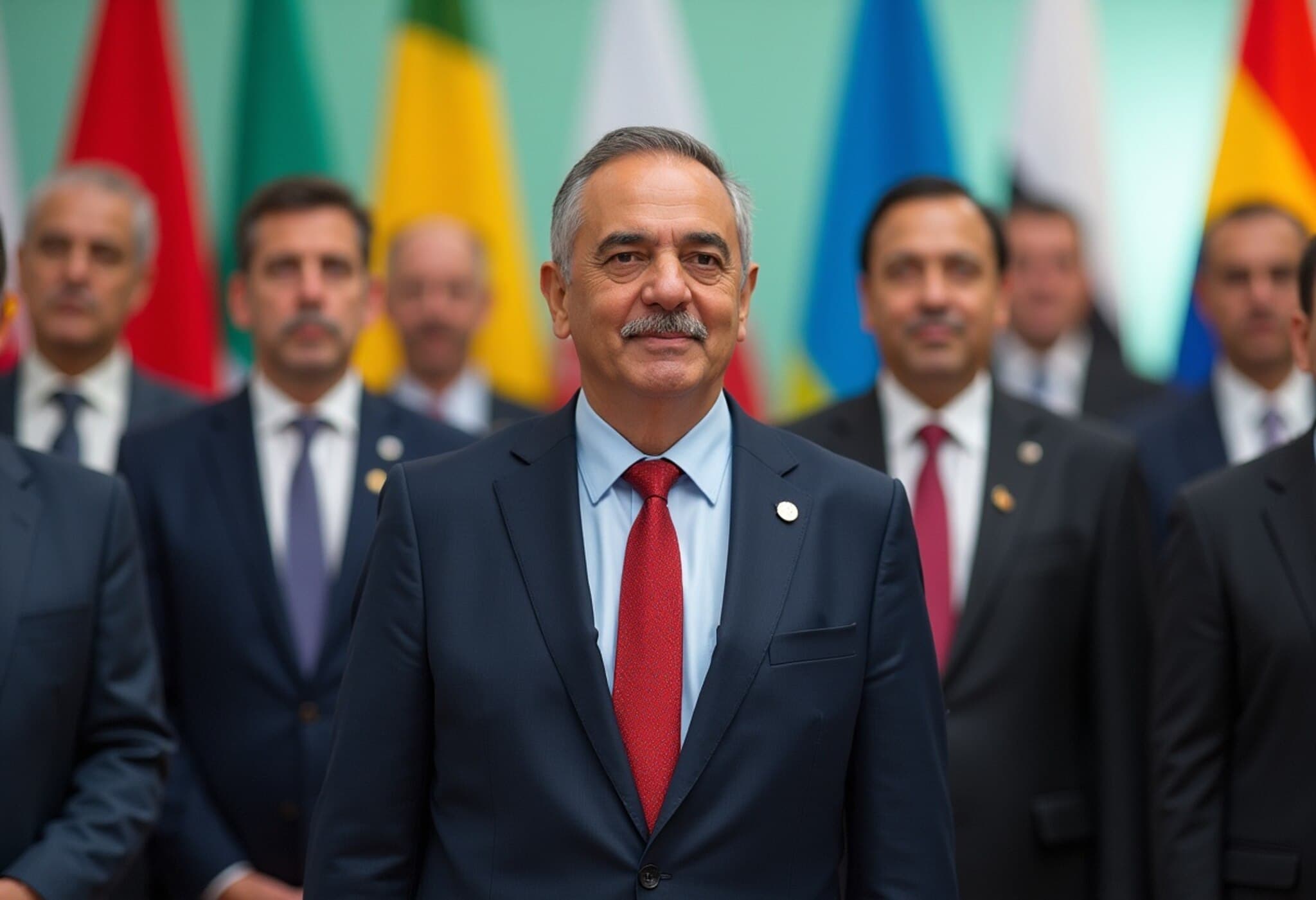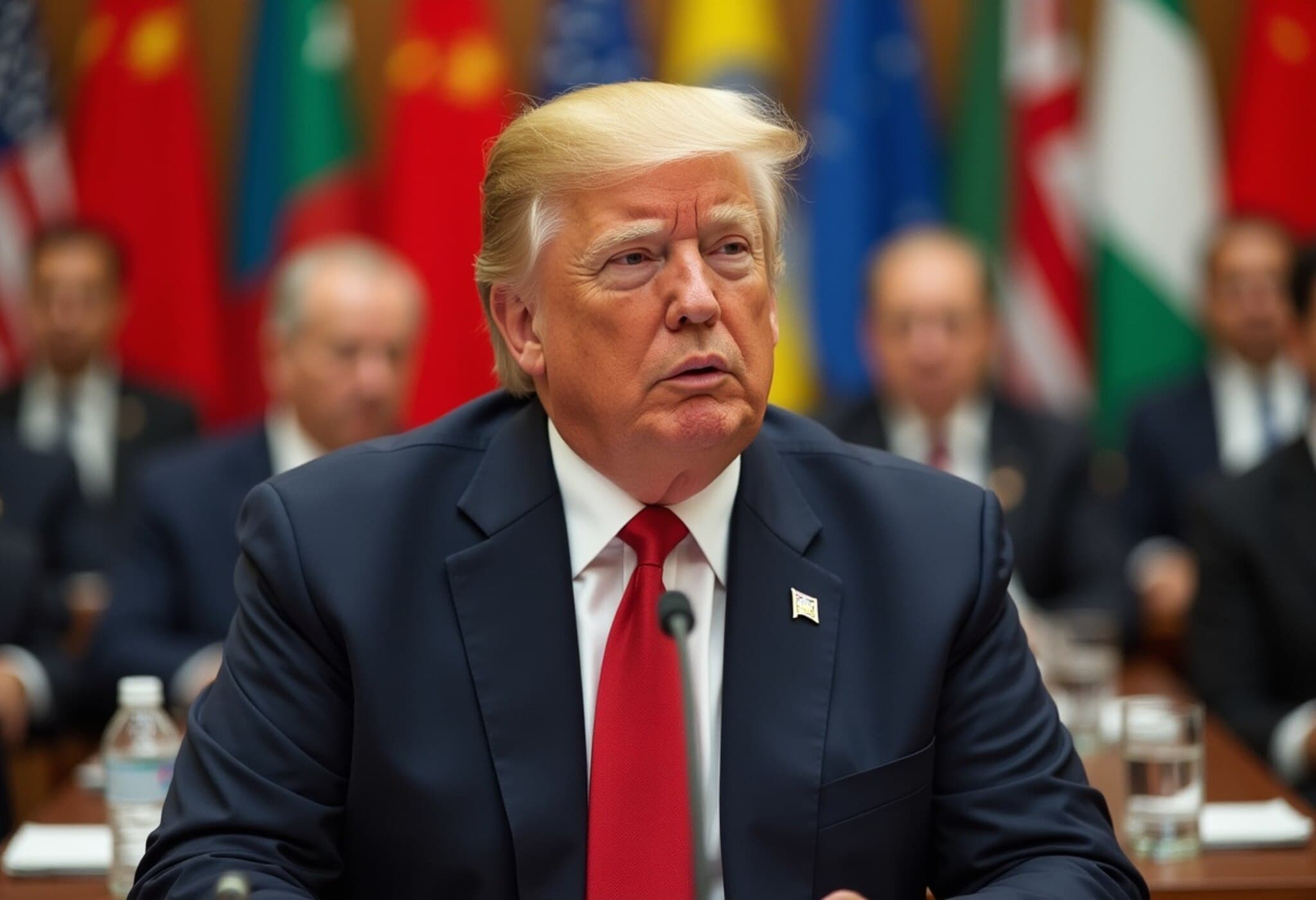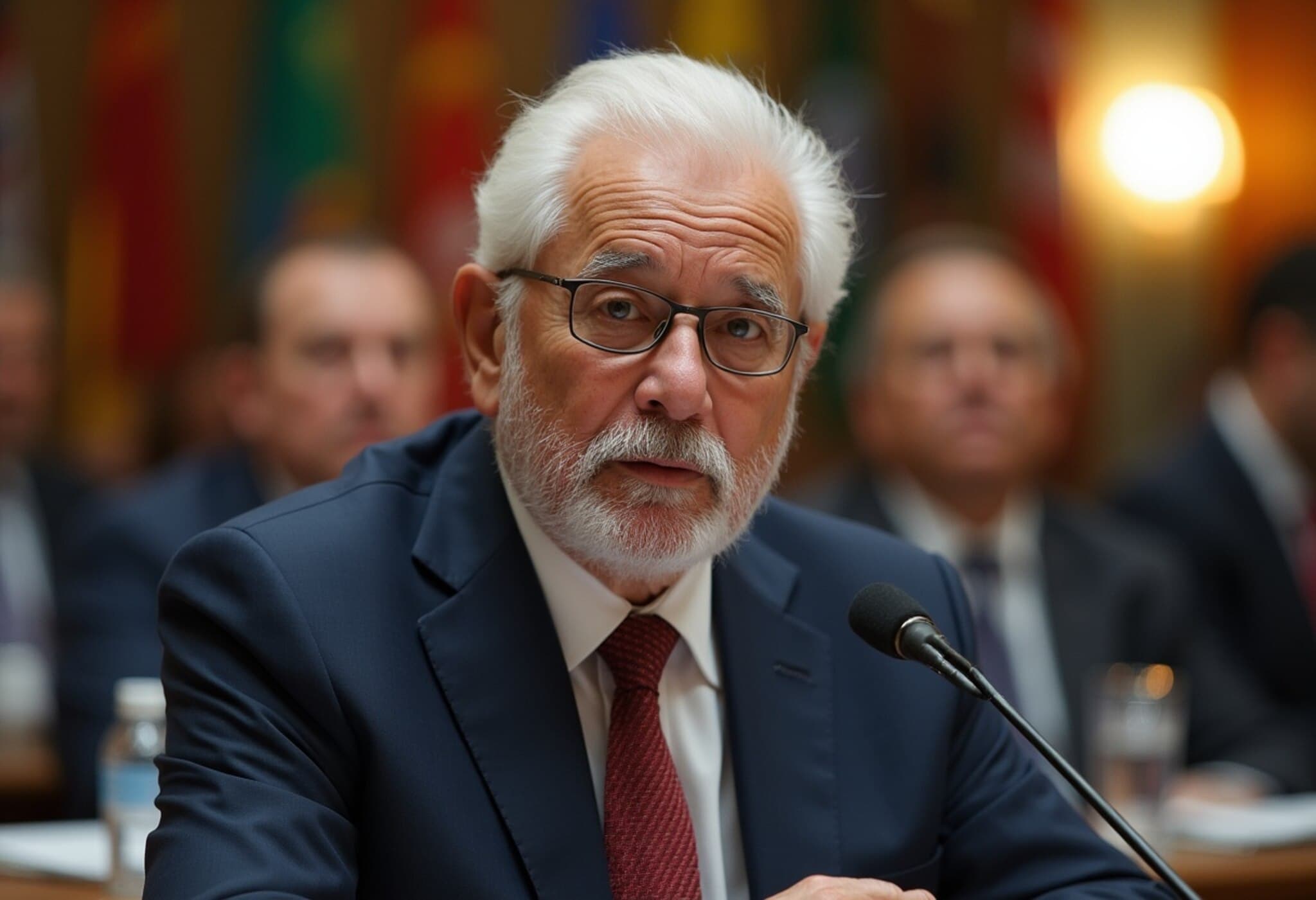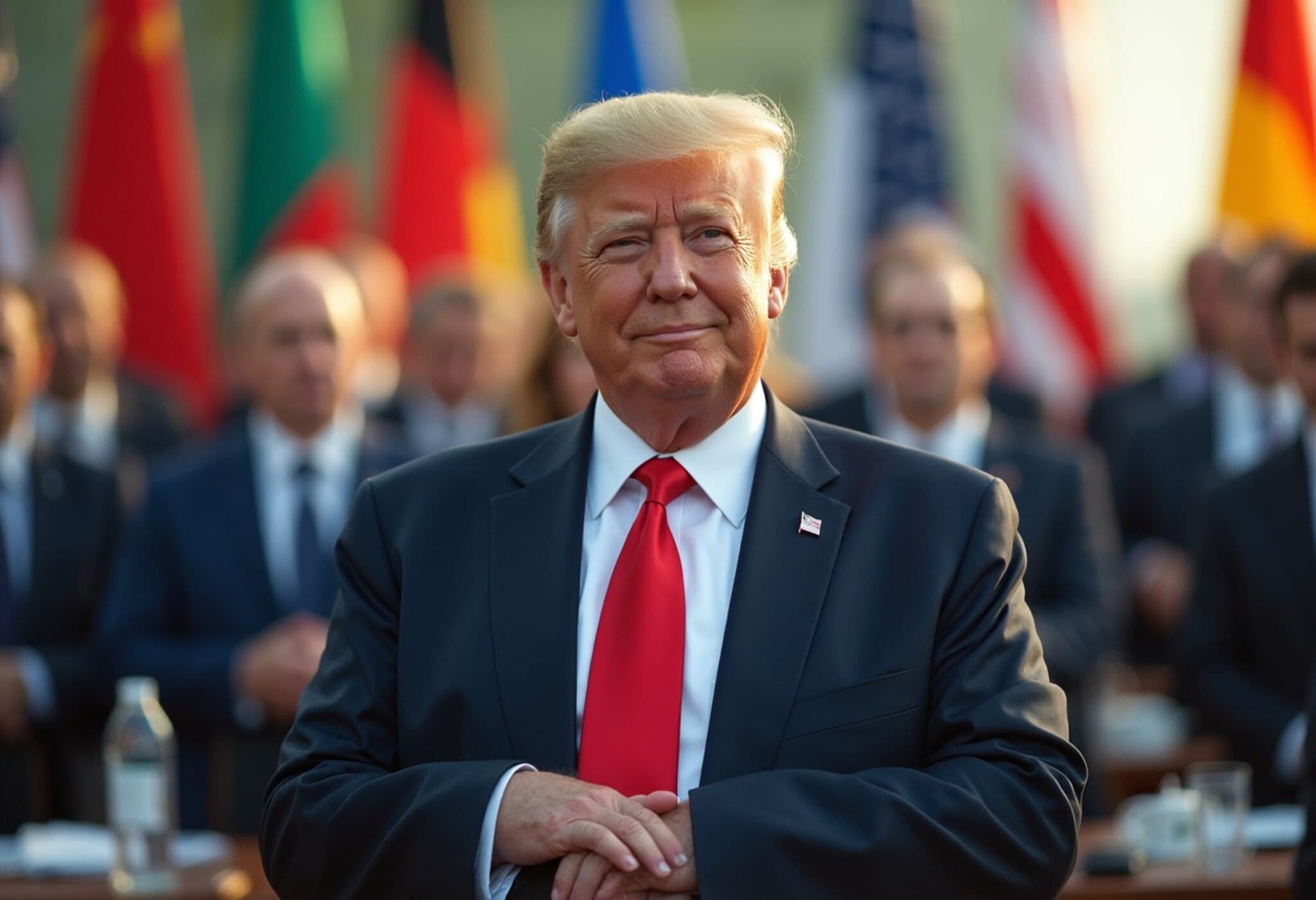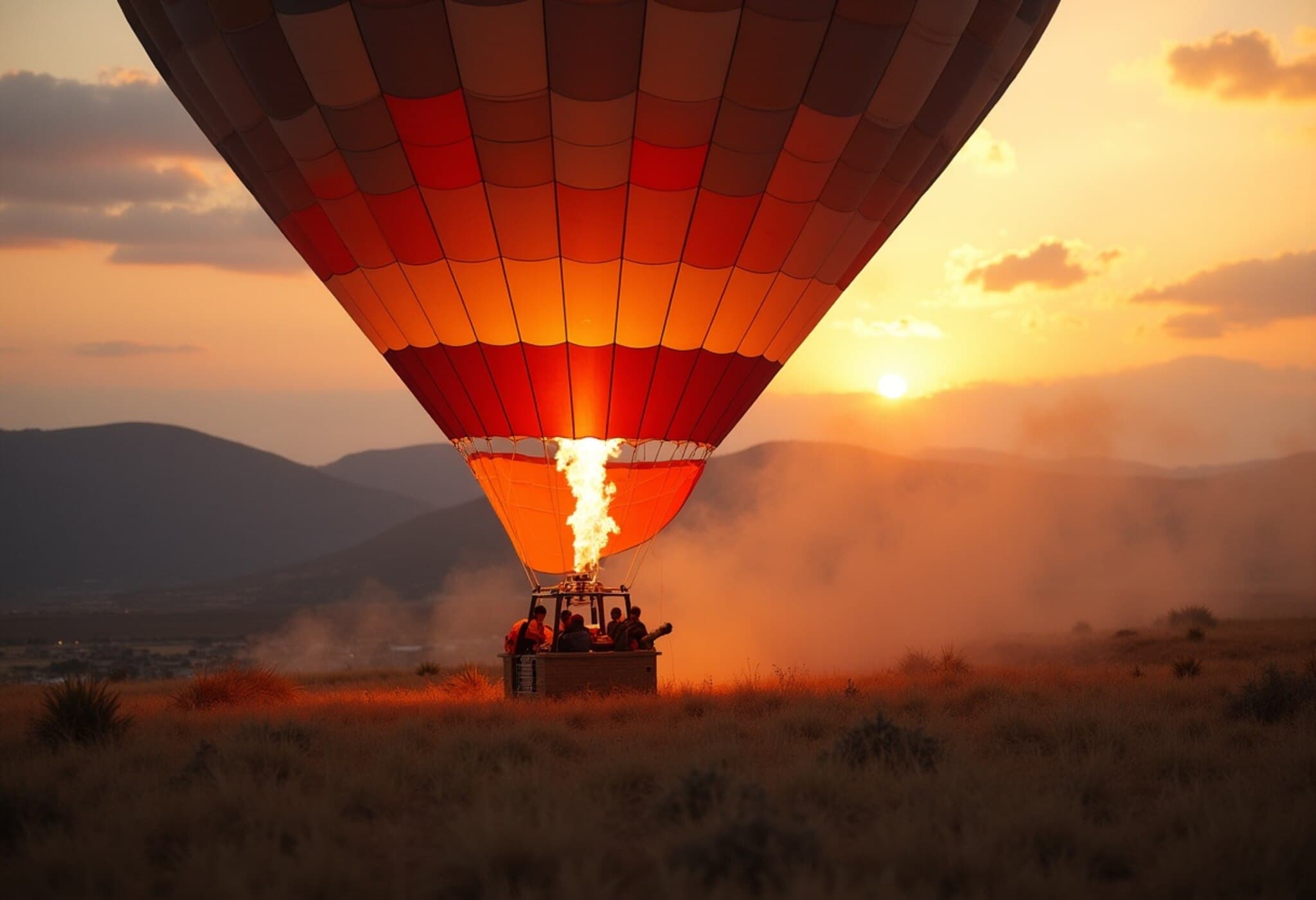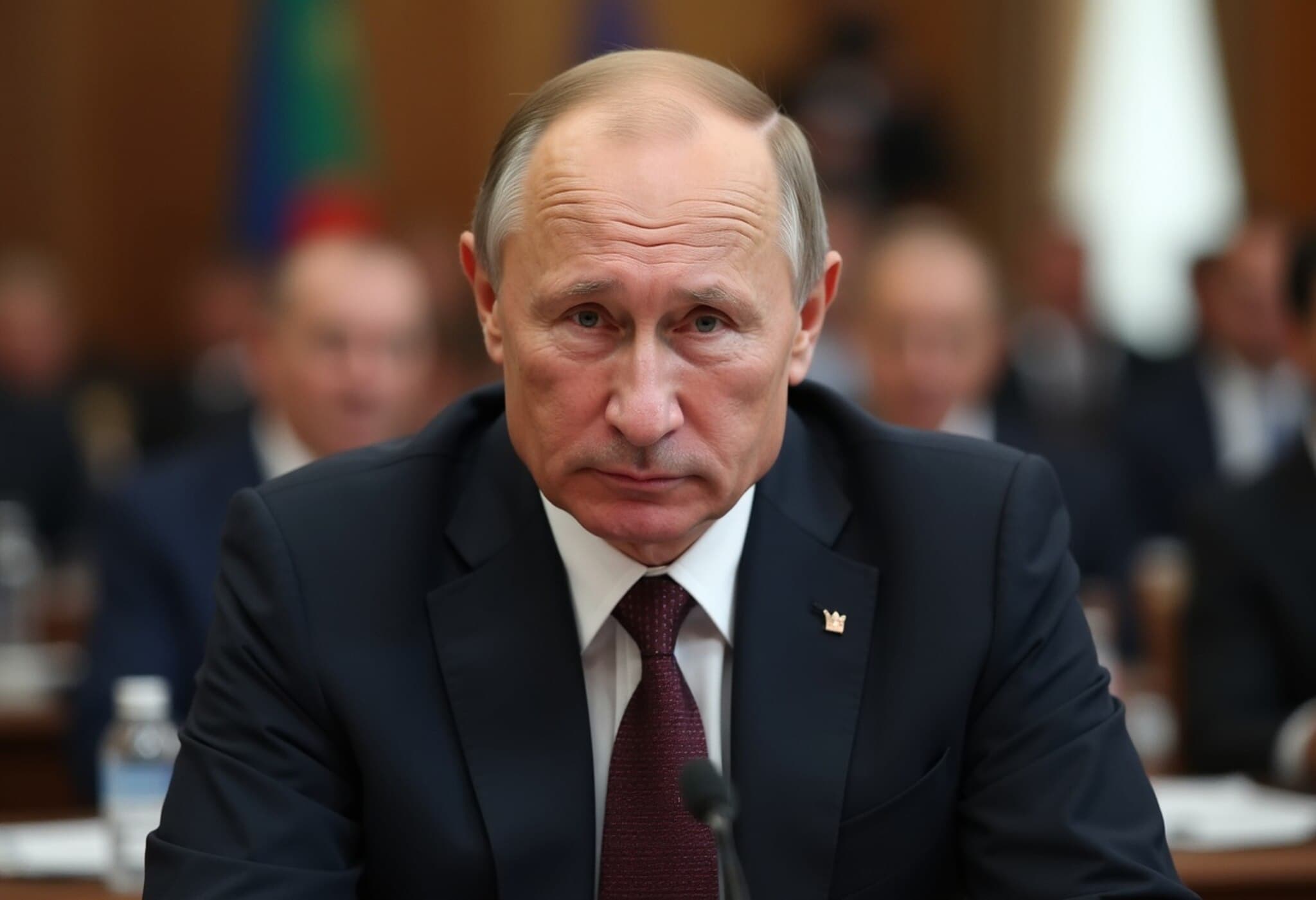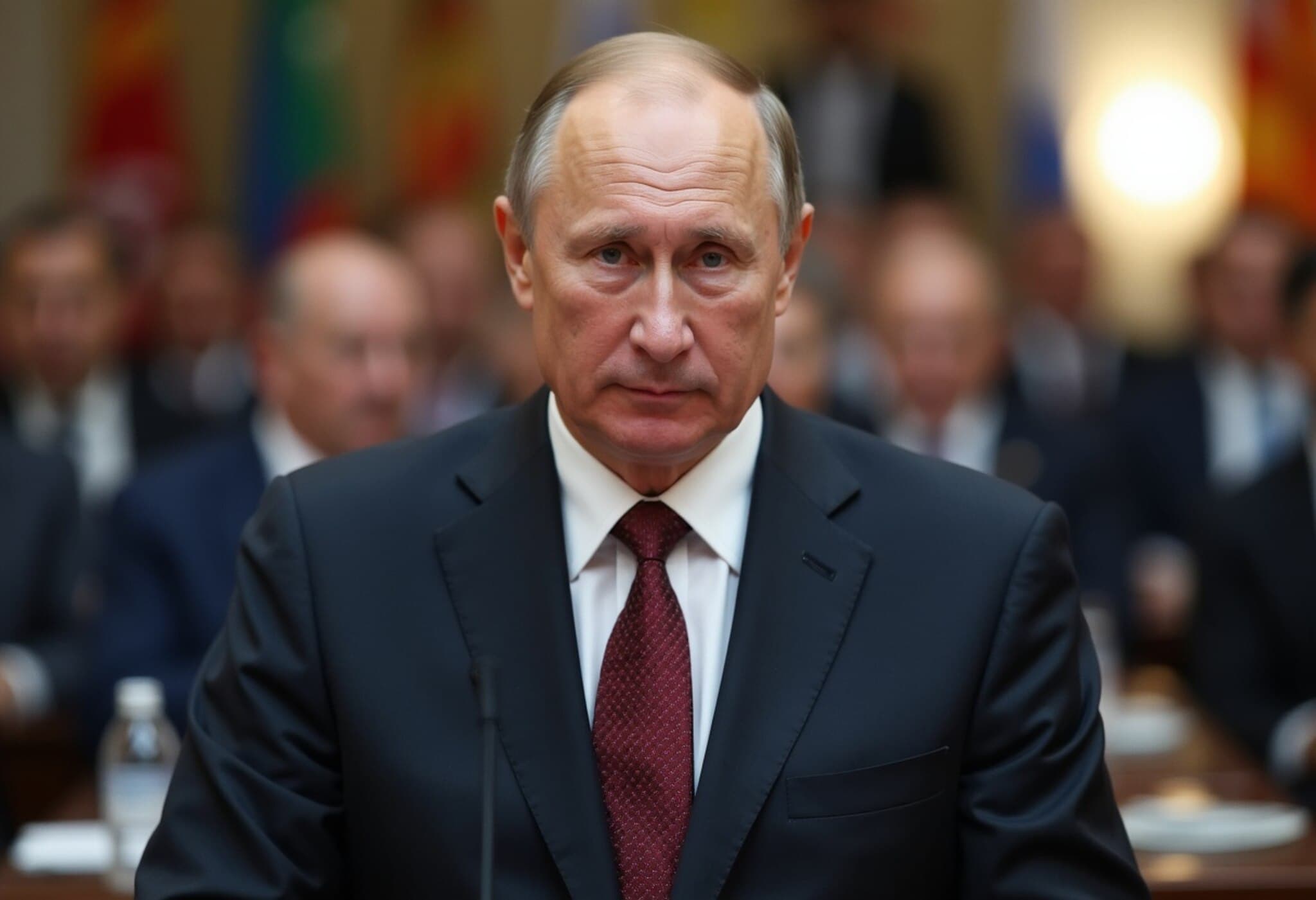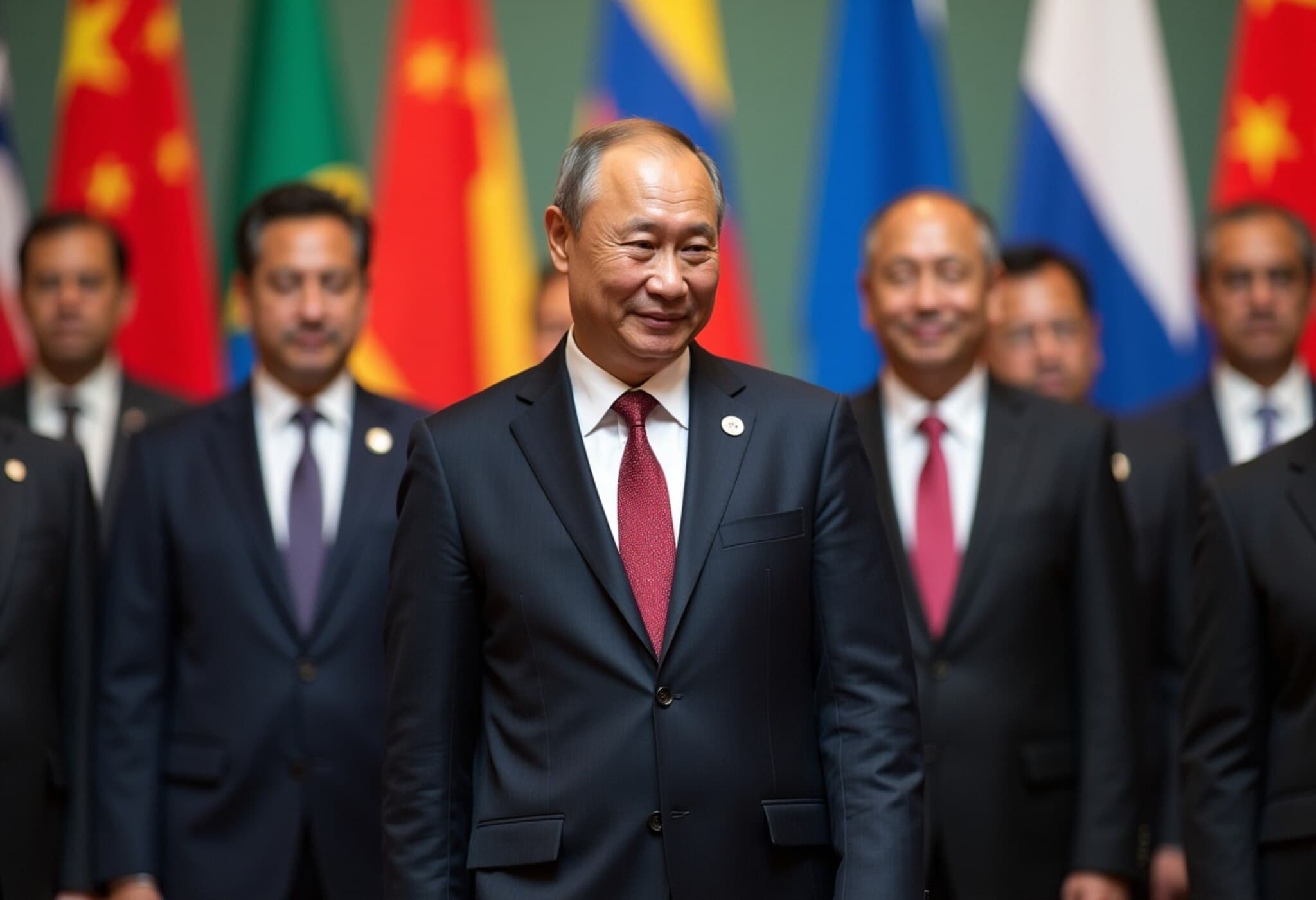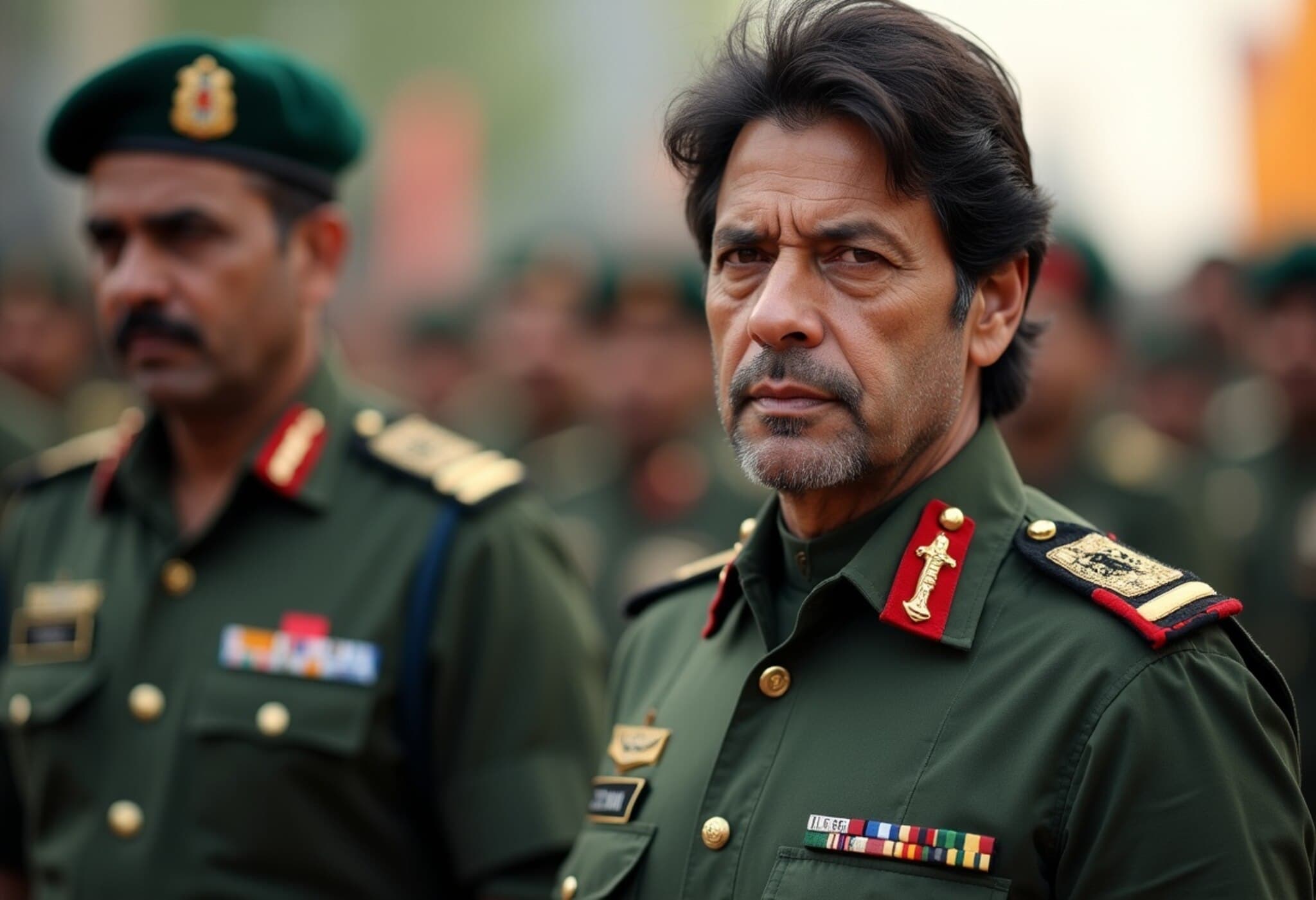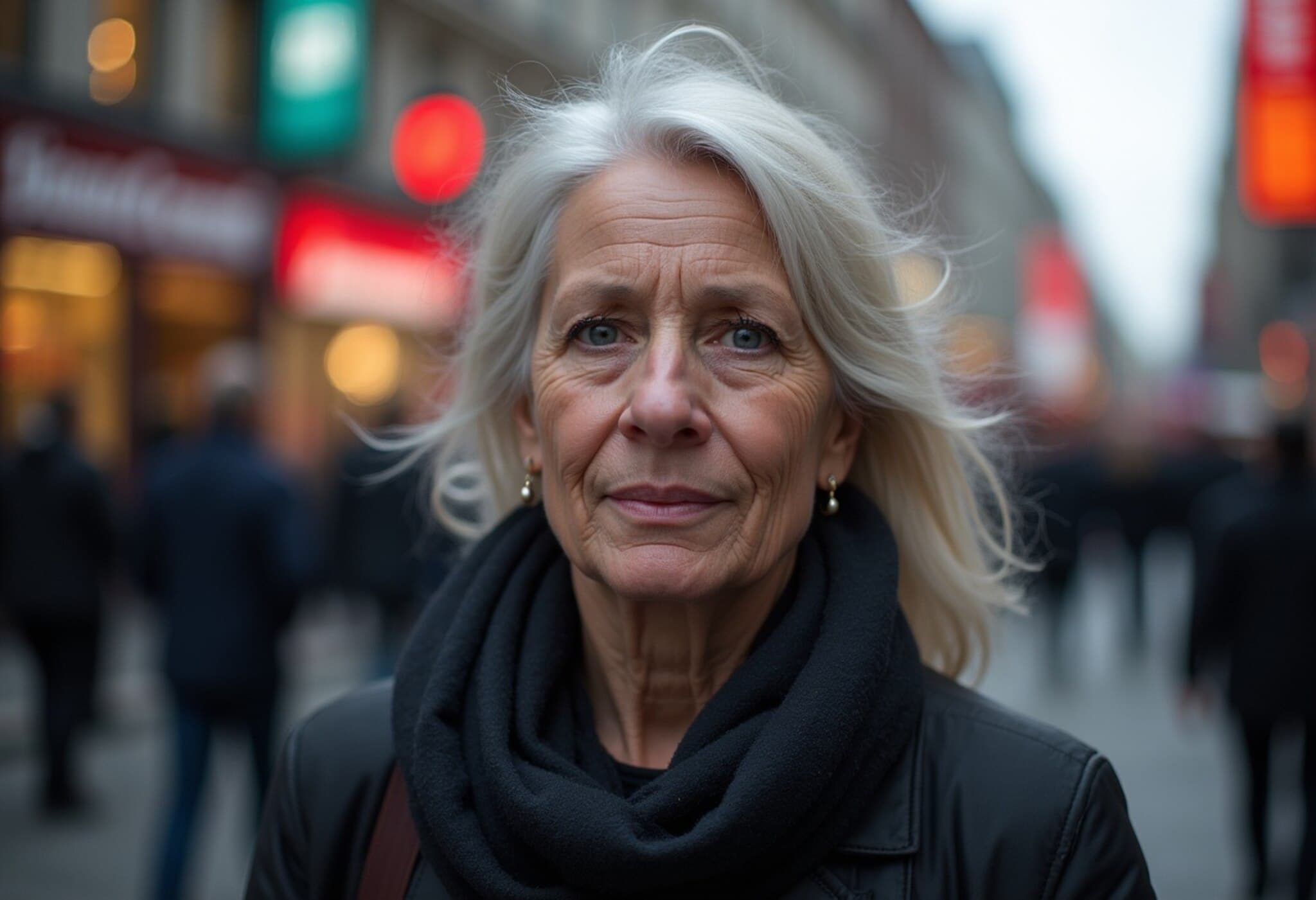BRICS Summit Commences in Rio: A Platform Amid Global Uncertainties
On July 6, 2025, leaders from the BRICS nations gathered at the Museum of Modern Art in Rio de Janeiro, Brazil, under the chairmanship of President Luiz Inácio Lula da Silva. The forum includes prominent figures such as India's Prime Minister Narendra Modi, China's Premier Li Qiang, South Africa’s President Cyril Ramaphosa, and Russia’s Foreign Minister Sergei Lavrov joining via videoconference. The summit unfolded against a turbulent backdrop defined by escalating global trade tensions and ongoing conflicts in the Middle East.
Trade Tariffs and Global Supply Chain Concerns Take Center Stage
The BRICS bloc issued a unified declaration sharply condemning the surge in trade tariffs, highlighting their inconsistency with World Trade Organization (WTO) rules and warning of the negative impacts on international commerce. According to the statement, these tariffs threaten to disrupt vital global supply chains and foster economic uncertainty, challenges that emerging economies can ill afford in an already fragile economic landscape.
Notably, the declaration stopped short of directly naming U.S. President Donald Trump, despite the administration's aggressive tariff policies. This diplomatic restraint suggests a strategic attempt by BRICS members, especially Brazil, to sidestep confrontation while protecting their national economic interests.
Middle East Conflicts: Iran’s Quiet Yet Powerful Presence
While Iranian President Masoud Pezeshkian was unable to attend due to recent attacks on Iran, his foreign minister, Abbas Araghchi, represented the country. Araghchi forcefully called for global condemnation of Israeli military actions, labeling them an "invasion" and asserting that both Israel and the U.S. must be held accountable for human rights violations. This raised critical questions about the long-term regional fallout, as Araghchi warned the repercussions would extend beyond immediate borders.
Contrasting with last year’s summit in Russia, which aggressively pushed alternatives to Western-dominated financial mechanisms, this year's BRICS declaration made only a brief reference to the Ukraine conflict, maintaining the group’s delicate balance in managing global geopolitical fault lines.
Experts Weigh In: Cohesion Challenges Within BRICS
João Alfredo Nyegray, an international business and geopolitics professor at Pontifical Catholic University in Paraná, suggests the summit reveals ongoing difficulties in BRICS positioning itself as a cohesive global leader. "The withdrawal of some key regional players and inconsistent representation of Middle Eastern nations underscore a fragmented bloc," Nyegray commented. This fragmentation may limit BRICS’s influence in effectively reshaping global governance structures amid rising geopolitical complexity.
Brazil’s Strategic Priorities and Cautious Diplomacy
As summit chair, Brazil set a pragmatic tone, emphasizing six strategic priorities: global healthcare cooperation; trade, investment, and finance; climate change action; governance of artificial intelligence; peace and security; and institutional strengthening. This focus on less contentious but essential areas appears designed to fortify internal cooperation without provoking the U.S., especially given former President Trump's threats to impose punitive tariffs against BRICS should the bloc undermine the dollar's dominance.
Ana Garcia, professor at the Federal Rural University of Rio de Janeiro, explained, "Brazil is navigating a delicate path — advocating reform of Western-led global bodies while avoiding direct antagonism to protect its economy. This balance is critical to safeguarding Brazil’s growth trajectory amid external pressures."
BRICS Expansion: Growing Pains and Opportunities
Since its inception, BRICS has expanded rapidly, welcoming Indonesia, Iran, Egypt, Ethiopia, and the UAE as new members last year, alongside strategic partner states including Belarus, Cuba, and Vietnam. Brazil's push to strengthen institutional development reflects an urgent need to integrate these diverse members cohesively amid serious global volatility.
Bruce Scheidl, researcher at the University of São Paulo's BRICS study group, views the summit as a vital platform for emerging economies to diversify partnerships and counterbalance the uncertainty sparked by tariff wars. "For these nations, BRICS represents a crucial opportunity to explore alternative economic pathways and assert their agency in a contested international order," Scheidl observed.
Public Protests Reflect Broader Social Critiques
The summit was shadowed by social activism, from a pro-Israel group displaying rainbow flags on Ipanema beach as a protest against Iran's policies on LGBT+ rights, to Amnesty International’s demonstration opposing Brazil’s offshore oil drilling plans near the Amazon River mouth. These protests underscore intersecting global concerns about human rights and environmental justice, woven into the backdrop of high-stakes geopolitical dialogue.
Domestic Challenges and Climate Leadership for Brazil
For President Lula, hosting the BRICS summit offers a respite from domestic political turbulence, marked by declining popularity and friction with Congress. It also provides a platform to champion climate action, particularly in the lead-up to the November COP 30 climate talks in Belém, deep in the Amazon. Here, Brazil aims to assert leadership on environmental preservation, crucial not only for national interests but global ecological stability.
Editor’s Note
The 2025 BRICS summit unfolds as a complex tapestry of competing priorities and fragile alliances. While it highlights the urgent needs of emerging economies to reshape global trade and governance structures, the bloc's internal disparities and external pressures temper its cohesion. Observers should watch how BRICS balances pragmatic diplomacy with ambitious reform, especially amidst escalating geopolitical tensions and global calls for sustainable development. As Brazil seeks both economic stability and environmental leadership, the world waits to see if BRICS can truly emerge as a formidable alternative in an increasingly polarized international arena.

